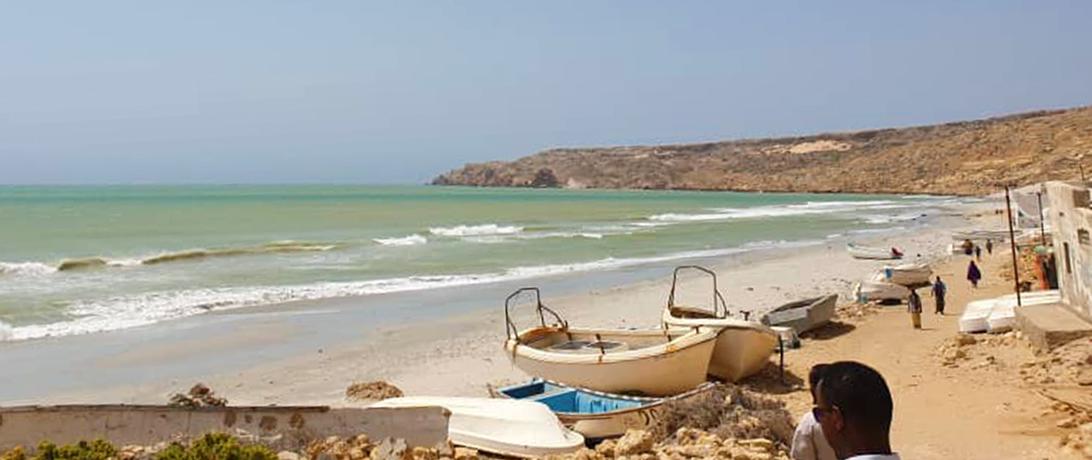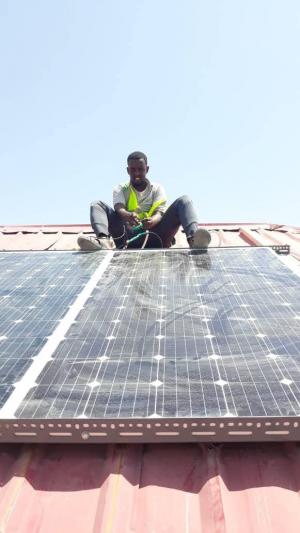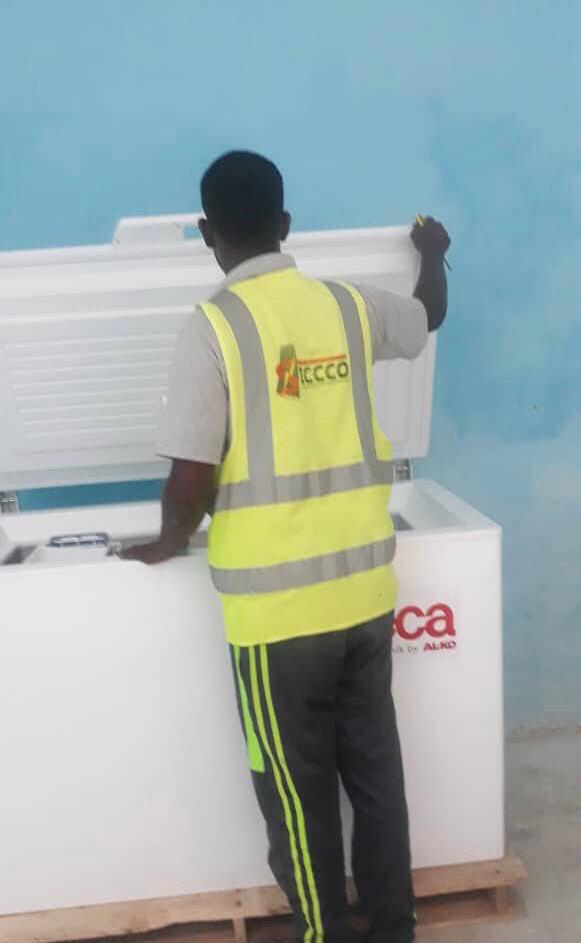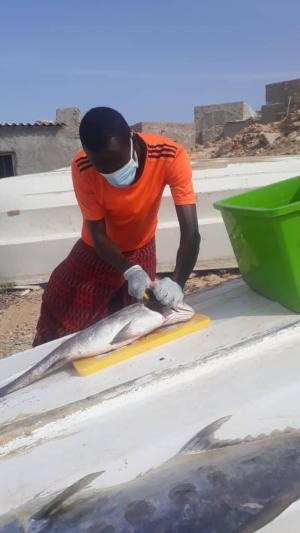
“When COVID-19 came and the fish market disappeared, it was as if our lives also stopped. The only source of livelihood I had known for years ceased..."
by Mohamed Mohamud Abdullahi
“When COVID-19 came and the fish market disappeared, it was as if our lives also stopped. The only source of livelihood I had known for years ceased. We held hopes that God would provide for us and somehow we would survive. However, with each passing day, seeing our catch waste away, things could not get any worse. For women-headed households like myself, who must find daily livelihood for my five children, things turned for the worse,” says Khadra.
Khadra owns a fishing boat in the coastal town of Bander Beyla, Somalia. Her livelihood was abruptly interrupted by the COVID-19 pandemic and the closure of the international fish market. She depended entirely on trading fish to eke out a living for herself and her family. The fish that Khadra traded was largely shipped to Yemen and Dubai, the largest markets for fish from Bander Beyla. However, with restrictions emanating from the pandemic, the markets closed, threatening the livelihood of not only Khadra, but thousands of people and households that depend on fishing.
Bander Beyla is a coastal community in the Bari region of Puntland, a Federal State in Somalia. About 70 percent of household income in the community is derived from fisheries. As such, proceeds from fish-centered businesses control the local economy, from transporters to small shops, schools, and food markets. Any impediments to the sector affect not only individual households, but the entire community.
With no reliable cold-chain facilities available to preserve the catch for long periods, Bander Beyla’s fishing community had pinned their hopes on the fast-moving nature of the lucrative fish markets in Dubai and Yemen. When those markets closed, fisherfolk faced huge losses. The lack of durable cold storage facilities meant fresh harvest would spoil before reaching local markets. A majority of the local fishers, including traders, fishers, fishmongers, and boat owners, were forced to either downscale their operations with the economic downturn or stop their fishing activity altogether.
While the domestic market could provide another avenue for selling fish and relieve some of the pain from closed international markets, the high cost of energy has been an impediment to expanding the fisheries value chain inland. Fishers in Bander Beyla already spend almost 70 percent of their total working capital per voyage for electricity and fuel, making the additional cost to transport fish inland to domestic markets unconscionable.
To support the fishing industry and the local community, Secure Fisheries partnered with the Ceenaad Fishing Cooperative of Bander Beyla—a collective of unionized traders, fishers, boat owners, and fishmongers whose aims is to maximize the potential of the fishing industry and strengthen the socioeconomic benefits to fishers and fisheries sector workers—to install a solar-powered refrigerator in Bander Beyla. The project aimed to provide storage facilities for fish, thereby reducing loss and enabling fishers and traders to expand their markets. The refrigerator has the capacity to hold 240 kilograms of fish and can be adjusted from refrigerator to freezer. The whole system runs entirely on renewable energy and consists of solar panels, a solar charge controller, a battery, the electrical load, and the fridge. This helps the Ceenad Cooperative maintain cost-effective fish storage and supply fish to domestic markets as an alternative source of income to replace the currently inaccessible export markets.



Bander Beyla fishers, who were idle with no market to supply, resumed fishing as soon as the refrigerator was installed, and they began shipping the fish to inland cities using refrigerated trucks. Since the installation, they have sold fish in booming inland markets like Qardho and Garowe. They transport fish at least four times a week to different fish kiosks, hotels, and small-scale traders. Now, the local fish market has expanded and has successfully replaced the lost overseas market.
This success offers growing potential, underscoring the demand of the local market. According to Ceenaad Fishing Cooperative of Bander Beyla chairman Said Farah, “There is still demand in the local markets and the capacity of the refrigerator provided to the community is small; there is need for more cost-effective solar-powered cold-chain infrastructure like blast freezers, ice makers, refrigerated trucks, and technical training on maintenance to sustain this equipment.” Along with proper fisheries management, the expansion of sustainable cold-chain infrastructure could have strong ripple effects on food security, employment, and incomes for Somali fishing communities.
Article Details
Published
Topic
Program
Content Type
Opinion & Insights